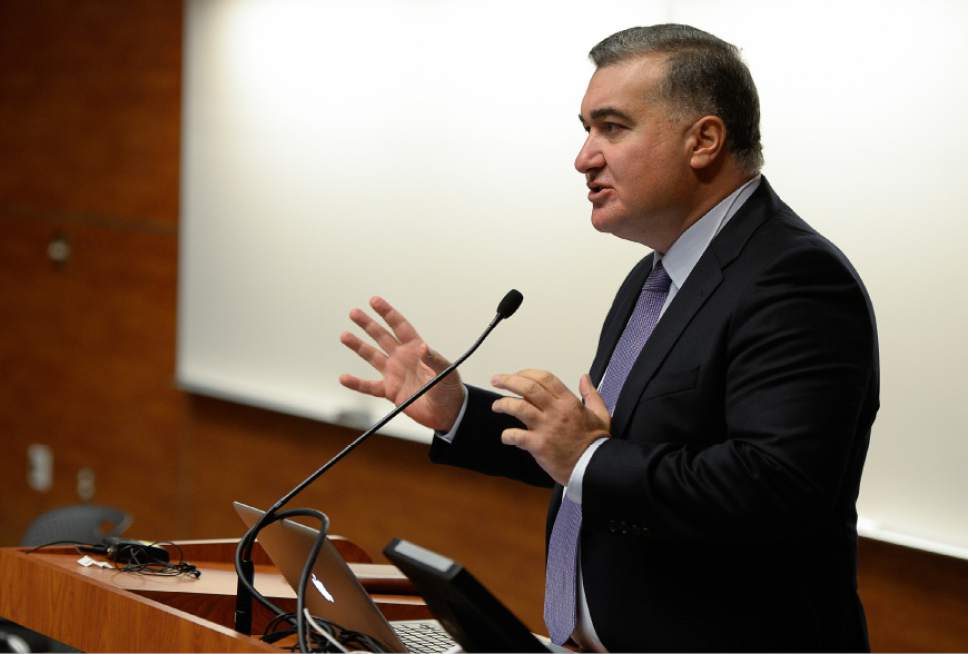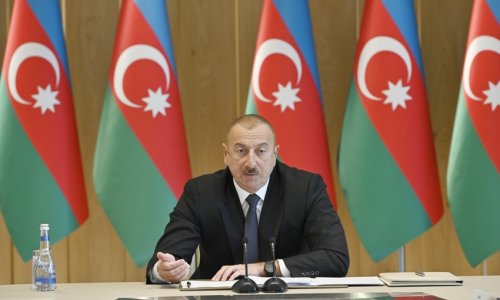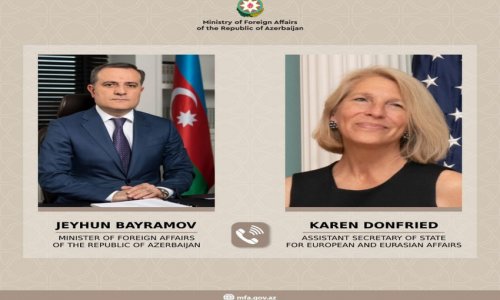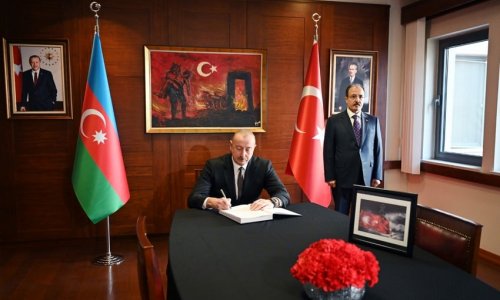The Azerbaijani ambassador to the U.S. told a Utah audience Tuesday that America should further embrace its role as a world peacemaker, and hailed it for helping them overcome bullying from drug cartels or aggressive nations.
Elin Suleymanov and Colombian ambassador Juan Carlos Pinson delivered that message to a conference on "America's Role in the World," organized by Rep. Chris Stewart, R-Utah, at the University of Utah.
Pinson said America helped Colombia make astounding progress against drug cartels, while Suleymanov said U.S. influence and signals have helped keep the peace in his sometimes unstable region neighboring Iran and Russia.
Pinson said when Americans hear the word "Colombia," they think of "drug trafficking, cartels, crime, violence, and a place full of problems. The country has changed. That is part of our history," and largely is no longer the case.
With American help and trillions of dollars in aid to help fight cartels, Pinson said Colombia has cut cocaine exports by more than two-thirds — and has captured, killed or removed most top cartel leaders, and largely overcome drug crime.
"Fifteen years ago, we were the most violent country in the world. Today I can tell you we will end this year having the lowest homicide rate in 35 years," and a rate lower than at least seven other Latin American countries.
"The United States made a bet on Colombia many years ago, and look where we are today," he said. "It has placed Colombia firmly on the path to lasting peace and prosperity," adding that Colombia is being used as a model for some African countries trying to overcome terrorism and crime.
"It would not be possible without America's role in the world" and the help it offered Colombia, he said.
Suleymanov similarly praised America for helping preserve peace in his area. Azerbaijan borders both Iran and Russia (and was part of the old Soviet Union).
For example, he said an oil pipeline was built from Azerbaijan through Georgia to a port in Turkey — which gave an additional oil source to Europe and elsewhere. It came as Russia had sometimes threated to cut off its oil supply to others. Suleymanov said a key to its construction was the United States brought affected countries together to negotiate plans, and then former President Bill Clinton presided over signing ceremonies. That sent the message "not to mess with" it, and the George W. Bush administration continued support as the pipeline was built.
"If there is no consistency, if there is no strategic commitment, people have less willingness to commit themselves" to such projects and peace, Suleymanov said. He added that America's support for that oil pipeline and a new gas pipeline now under construction has been unwavering, which helped preserve them.
Remembering that is important, he said, at a time after Russia recently invaded the Ukraine and seized its Crimean peninsula, and Russia this month fired missiles into Syria from ships in the Caspian Sea — an area that he said Russia, Azerbaijan, Iran and Turkmenistan had agreed to keep free from military action.
Suleymanov said he is concerned how others may see a rather tepid response by the West to such action.
"It demonstrated, in many ways, the reluctance of the West to get really involved," he said. "That is something that people notice."
Stewart, a member of the House Intelligence Committee, said, "If we're not willing to exert our influence on the world, we leave the world much darker and much more chaotic."
(www.sltrib.com)
www.ann.az
Follow us !











